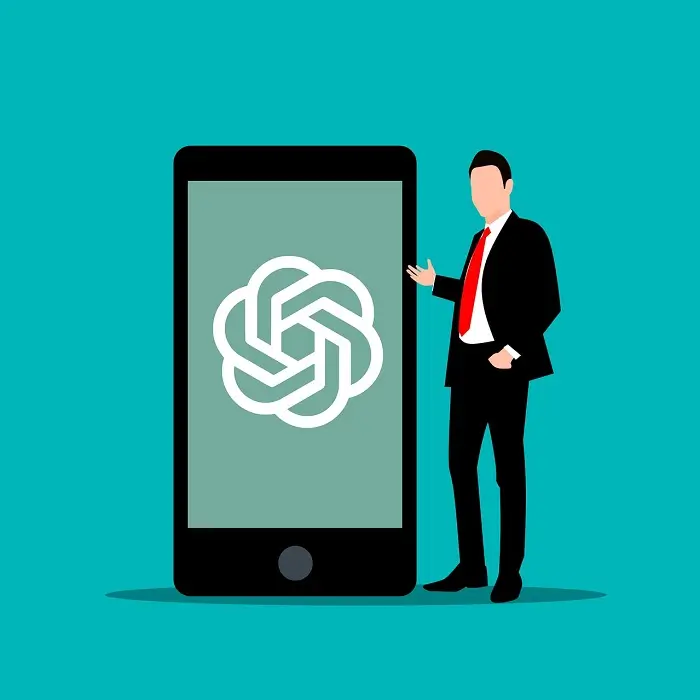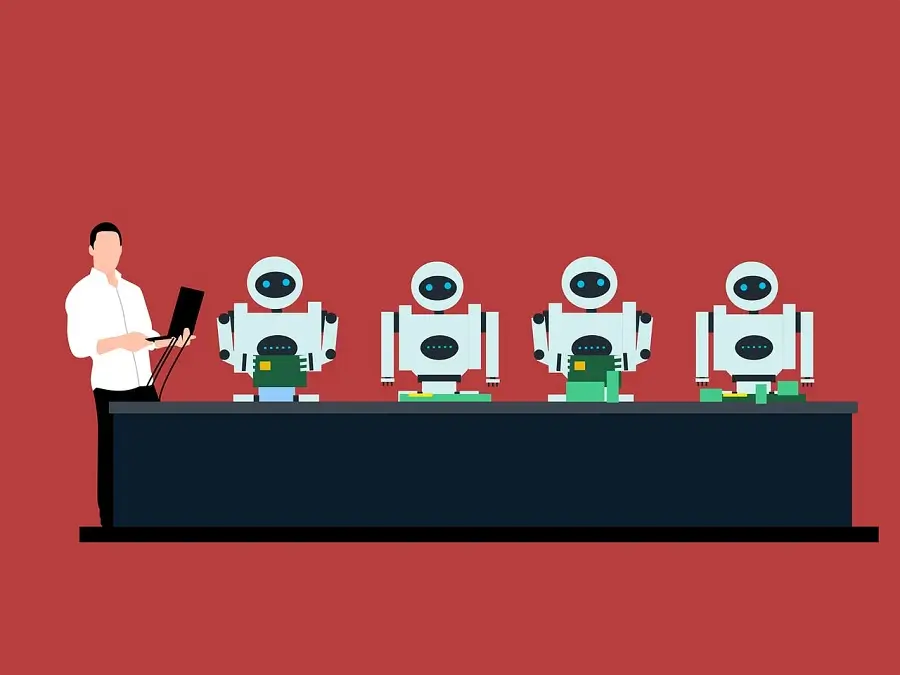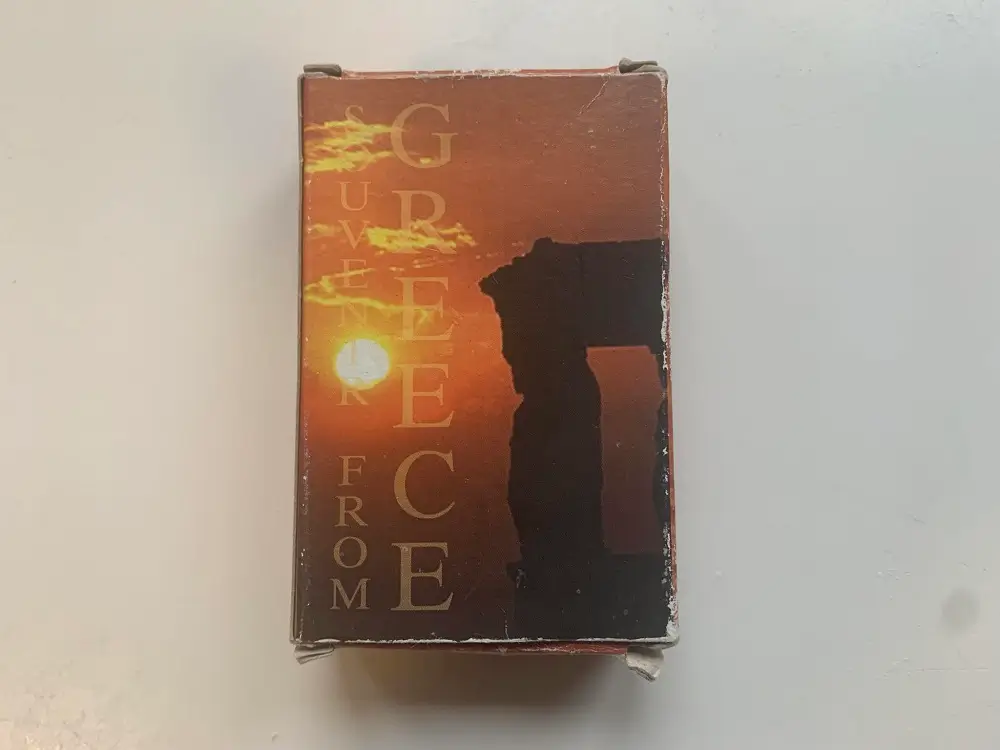So, I’m at a tech expo chatting it up with not one, but two savvy business leaders who spill the beans on how they craft brand messaging: ChatGPT. Yep, they’re letting the AI do the heavy lifting to make their brand pop, build trust, outshine the competition and woo their dream customers. On the surface of things, everything seems on point. But something is simmering below the glossy veneer.
One of these leaders confided in me that the reason behind his company’s reliance on AI is the lack of funds to invest in proper marketing and thought leadership. The other expressed skepticism in ChatGPT’s ability to evoke emotion and hit the right notes with his audience’s aspirations. Then he furrowed his brow in suspicion, looking like he just smelled something fishy, and dropped the bombshell,
“The information is there. But how do you humanize it?”
I leaned in a tad closer and retorted,
“By hiring a professional writer. You know, a human?”
He surprised me with his immediate response—a hearty burst of laughter accompanied by a playful finger wag as he exclaimed, “Ah, you’re good!”
I’m embracing the AI revolution with ChatGPT as my strategic partner
I want to make something abundantly clear. I’m not here to throw shade on ChatGPT’s mojo (although the headline might have hinted at it). Nope, not me – I’m all in. ALL IN. Before ChatGPT came along, I could only dream of having an editor. A trusted ally who’d make sure that my sentences weren’t starkly disjointed but that they seeped into one another in a coherent tone. A wingman who’d declutter my paragraphs when I’d get carried away with the grandiose of my own verbosity. A loyal sidekick who’d fine-tune my ideas and polish my prose to perfection.
Although ChatGPT is stirring the pot of ethical dilemmas regarding the veracity of one’s work, it’s undeniable that the force unleashed by this platform won’t be reversed. According to MIT Technology Review, ChatGPT’s ability to rapidly create human-like text is clear evidence that the AI revolution has real potential.
Furthermore, this technology has enticed Microsoft to invest $10 billion in OpenAI and ChatGPT in hopes of reviving its floundering Bing search engine according to Semafor. Similarly, Salesforce revealed last year that it will introduce a ChatGPT app in its popular Slack product, while also announcing a $250 million fund for investment in generative AI startups. These are hardly isolated cases among the industry giants. The list continues, from Coca-Cola to GM. Everyone seems to have a stake in ChatGPT.
In a nutshell, its impact has been transformative. ChatGPT has improved my writing, and the writing of countless others, in ways that shatter expectation. Hell, it’s even improved the wording of this very sentence. Put differently, we’re not returning to the Stone Age that was 2022. But let’s go back to the topic of authenticity as it relates to ChatGPT.
Writing has to be original and well planned out, despite ChatGPT’s input
As ChatGPT flips market research on its head, numerous eyebrow-raising questions are emerging about its implications on traditional metrics of success, according to Finance Magnates. In our new reality where AI and human efforts coexist side by side, the rules of engagement have changed, but quantity must never eclipse quality.
Sure, we can generate a deluge of content by ChatGPT in matter of seconds – but this calls for an emphasis on tailoring messages that are valuable and relevant to target audiences. What Finance Magnates is saying is this: We have to serve up messages that actually matter to our audience.
For this reason, I’m careful that I don’t lean too heavily on ChatGPT. I make a concerted effort so that even with AI’s assistance my writing style retains its own unmistakable edge. I don’t use it to conjure up brilliant ideas but to enhance and refine them. As a professional writer, each one of my sentences bears the hallmark of a skilled professional. Yet, with ChatGPT in the mix, those same sentences gain an extra layer of polish, like they’ve been touched up by a seasoned editor.
It’s like applying makeup – you don’t morph into a totally different persona just because you’ve slapped on some lipstick and mascara. You use it to amplify your natural beauty, tailored to the occasion. Regular readers of my blog can attest to my signature sass that’s not easily replicated. Actually it takes only a peek at my blog to realize that the writing is original.
Going beyond the algorithm and writing on my own terms
ChatGPT: Where I draw the line
I rely on ChatGPT to help me with a variety of tasks. But let me first share where I intuitively or consciously abstain from employing AI assistance. I do not use Chat GPT to:
- Generate story ideas. As a copywriter who primarily writes for companies in the tech sector, it’s usually not my job to come up with narrative concepts. My clients have the inside scoop of their business, customers and competition which enables them to frame their message effectively to their prospects. While they provide the ideas and direction for their blogs, white papers and other promotional materials, my role is to articulate those ideas in a way that resonates with their target audience. No one wants to slog through a list of benefits without a human element. And my client’s prospects don’t have to – I inject enough flair to ensure readability.
- Brainstorm creative angles. This may come as a surprise, but it never once occurred to me to ask ChatGPT to help me generate something creative, including vivid descriptions. I’ve been using the AI writing tool since January of 2023 and in all this time I used only one truly exceptional phrase generated by GhatGPT. It was a real gem but I haven’t struck gold with another nugget of that caliber. A lot of my creative ideas just come to me after I’ve been thinking about them for a while. An idea could strike while I’m dining with friends, working out or when I’m strolling through the aisles at the grocery store. Companies don’t hire professional writers for fancy words only – they hire them because of their unique skill to connect tech solutions with the experience of humans who use those solutions. That’s why writers are writers and not accountants. At the end of the day, I’m a wordsmith by trade, not a ChatGPT cheerleader. I don’t play second fiddle to an AI; it’s the other way around.
- Save time. I have trouble explaining to friends that my writing pace hasn’t changed since ChatGPT entered the picture. It’s contrary to what people expect from an AI tool. Ai is probably amazing at saving time for people who write in their role but don’t have to be creative. In my case, things are different because I do nothing but write for work. Words are my currency. Even in my emails I strive for perfection because every correspondence is an opportunity to showcase my writing skills. What ChatGPT has done is improve the quality of my writing. It has enabled me to tinker with different angles and experiment with language more effectively, resulting in writing that makes a stronger impact. Thanks to ChatGPT, I now have a larger arsenal of sentence structures at my disposal, which gives me a plethora of options to play with. But this expansion of choices is not translating to time saved. Only better quality.
- Use clichés because I don’t use clichés. I repeat, I do not use clichés. I’m a fan of ChatGPT, but that doesn’t mean I’m head over heels for everything it spits out. For one, it tends to churn out writing littered with dead metaphors that evoke no emotion. Even before I became a writer, I intuitively avoided using clichés, platitudes and acronyms. During my high school years, I was always ultra-sensitive to trendy phrases. I picked up on them like a radar. I could pinpoint with laser precision when various friend groups adopted them and when they fell out of favor. Every now and then, I did catch myself tossing an occasional buzzword. But it always triggered an internal eye roll.
ChatGPT: Where AI is imperative
Here’s a list of tasks for which I summon ChatGPT’s help. Mainly it’s to:
- Refine the tone and style of my clients’ brand communications. As a freelancer, I bounce between different companies all the time. Although I primarily work in the tech sector, there’s no universal brand voice that reverberates across all industry players. I also occasionally take projects from organizations in other sectors, whose tone and style can fluctuate drastically. Some are more casual in their approach while others are more formal. Some want Silicon Valley swagger, others demand corporate slickness. Some want punchy case studies, others want the epic saga of white papers. I can’t write the same way for a rural insurance company in the UK as I do for a Californian startup. Over the years, I taught myself to be a chameleon and slip into the skin of any brand. But AI has been helpful: If I sound too stiff, I’ll run it by ChatGPT for a more casual tone. If I’m veering too avant-garde, I’ll ask AI to add a more formality. This helps me hit just the right nuance that my clients are seeking.
- Enhance storytelling. Readers rarely register transitions consciously, but they notice the gap if they aren’t there. The absence of transitions can disrupt the flow of the text, make it choppy in certain sections and disorienting for the readers. Transition is a subtle guide for readers – a hidden GPS that leads them through the story’s twists and turns. Not having them in place would be like missing a step on the stairs. Transitions act as invisible threads that stitch concepts together for a patchwork of ideas that we call narrative. Sometimes I’ll have an idea and want to bridge it to another idea but that connection will often need a bit more elegance – especially if the ideas are very different from one another. This happens because it’s easy to fall into the trap of rendering transitions as merely mechanical and I Never Include Purely Mechanical Sentences In My Writing. I always make sure that they also serve an aesthetic purpose, which is where ChatGPT helps. AI is also great for generating synonyms which reduce monotony in writing.
- Obtain technology explanations. This has been the biggest game changer for me. As a writer who studied journalism and business, I lack the expertise of a developer and must constantly learn about the technologies that I write about. Needless to say, some service offerings are very complex. Sometimes, the subject matter experts are busy and I must gain the contextual understanding of the products that my clients sell on my own. This includes all the ways that specific solutions function in real-world scenarios, while interacting with various systems and other technologies. Using ChatGPT is a bit like having a developer buddy who’s always got my back.
- Edit! Edit! Edit! And edit some more. Who hasn’t questioned the quality of their writing? Professional writers are even more inclined to doubt the quality of their prose because they’re pressured to make every sentence stand out. As for my own style, I tend to favor slightly longer sentences (a crime I know!) because I think fast and cram too many ideas under one clause or phrase. With ChatGPT, I can declutter the chaos and untangle my busy thoughts for better clarity. I also turn to ChatGPT if I need to condense sections of my writing, either for the concluding paragraph or introduction. The generated text is always based on my own words to begin with but I tweak it for originality even further. And of course, there are the headlines. AI chips in with generating headline ideas although I prefer to use its suggestions for headline structure rather than verbatim writing.
ChatGPT: Always a bridesmaid, never a bride, as it should be
AI has undoubtedly shaken up the game of writing and content creation yet we must never lose sight of its role as a tool rather than substitute for human creativity and authenticity. My experience with ChatGPT has been nothing short of transformative. But I’d be out of work if I used it to outsource my creativity because, left to its own devices, AI generates content that sounds like a bad plagiarism attempt.
If I weren’t a writer, I might succumb to ChatGPT’s penchant for loading my paragraphs with dead language and clichés. Seeing that I am a writer there’s no way I’m letting AI leave a generic imprint on my style. As long as I make my living by putting one word in front of another platitudes and mechanical prose will have no place in my narrative. So, ChatGPT is welcome to continue doing its thing with algorithms and whatnot. In the meantime, I’ll remain on my laptop, spilling my guts and serving up original writing that makes people tick.







